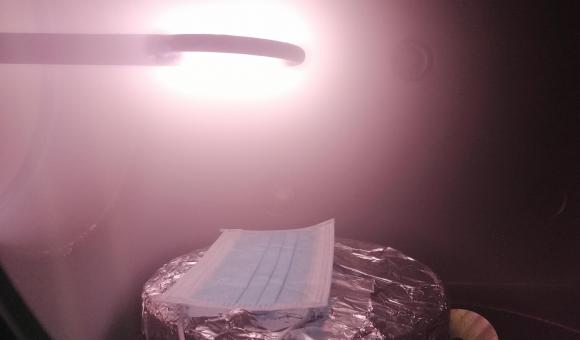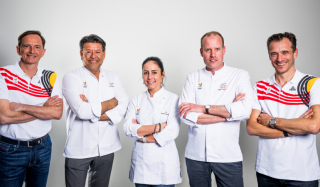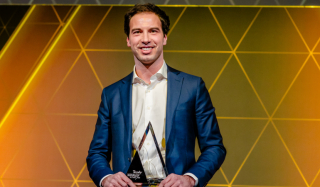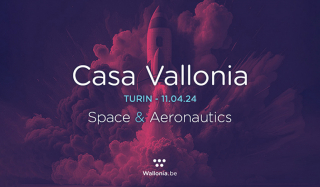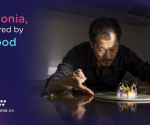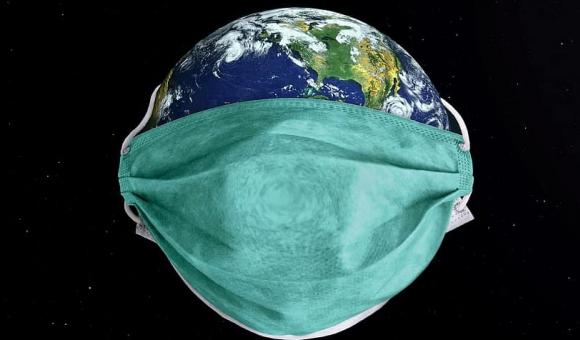
While more and more people are wearing masks around the world, the question of decontaminating and reusing masks is on everyone's lips. The Mons-based research centre, Materia Nova, proposes a plasma treatment in which the device resembles a conventional microwave. This technique is in addition to a dry heat technique (AMB Ecosteryl), UV technique (Lasea) and hydrogen peroxide technique (ULiège). We take a look at these sterilisation techniques, which have all had promising initial results.
Since the start of the lockdown, Wallonia has planned to set up, in parallel with the mask production sector (surgical and FFP2/3 type), a decontamination sector so that staff in hospitals, rest homes and care homes can reuse these masks, avoiding the risk of disruption to supplies. The University of Liège is coordinating the project, which brings together a consortium of Walloon companies specialising in the sterilisation and recycling of medical waste, and two research centres, Materia Nova and CentexBel.
A spin-off from the University of Mons, Materia Nova is a research and development centre specialising in the development of innovative materials. Thomas Godfroid, scientific coordinator, explains their innovative treatment: "The principle is to use a gas, air in this case, which will be activated in a plasma discharge. The technique consists of passing an electric current through a gas to break the molecules that will attack pathogens such as viruses or bacteria that are on the surface of the mask". In one minute, all COVID-19 residue is removed from the mask and is sealed in an airtight bag.
The product is intended for health care facilities and should be available in May. "Our target is hospitals and nursing homes", explains Thomas Godfroid of the RTBF, "we have focused on smaller equipment to provide decontamination treatment on demand rather than on a wider scale."
"It is an essential project given the urgency and the current shortage of masks. This is also important in view of the current three-fold increase in the price of surgical or respiratory protection masks. For every patient in a Covid unit, hospital staff use 40 to 50 masks per day. Millions more masks are needed to tackle this health crisis!", explains Éric Haubruge, Advisor in charge of innovation, regional development and international relations at the University of Liège (ULiège) and coordinator of the project.
In addition to the plasma treatment developed by Materia Nova, ongoing tests are also investigating the effectiveness of the following techniques:
- Hydrogen peroxide treatment with the CHU (hospital) of Liège
- UV irradiation with Lasea, a spin-off of ULiège which specialises in high-precision lasers
- Dry heat treatment, with AMB-Ecosteryl, the Mons-based global leader in treating hospital waste.
- Ethylene oxide treatment, with Sterigenics Belgium, a company based in Fleurus and Petit-Rechain that supplies the medical device and pharmaceutical industries with sterilisation solutions using ethylene oxide treatment.
Centexbel, the scientific and technical centre of the Belgian textile industry located in Grâce-Hollogne which is also a partner in the project, is performing integrity tests on the masks. "The methods demonstrate that they correctly eliminate the microbial load. The tests performed by Centexbel on the barrier function are very promising", explains Éric Haubruge. These highly positive results will now enable health care institutions to set up a protocol for using these methods. "Our results will also be incorporated into a large-scale international study coordinated by the WHO, in which ULiège is currently participating", confirms Prof. Éric Haubruge.
In addition to these projects, other initiatives are also emerging, including SalamanderU (Marche) which is run by Walloon companies and which specialises in confinement units, and Solidfog (Ciney) which develops sterilisation systems using peroxide mist.
Their combined expertise has made it possible to develop mini decontamination rooms that can fully sterilise up to 1,000 masks per day for an estimated cost of 60 cents (a new mask currently costs nearly 5 euros). Studies are still ongoing regarding the number of possible use cycles before the mask loses its properties.
